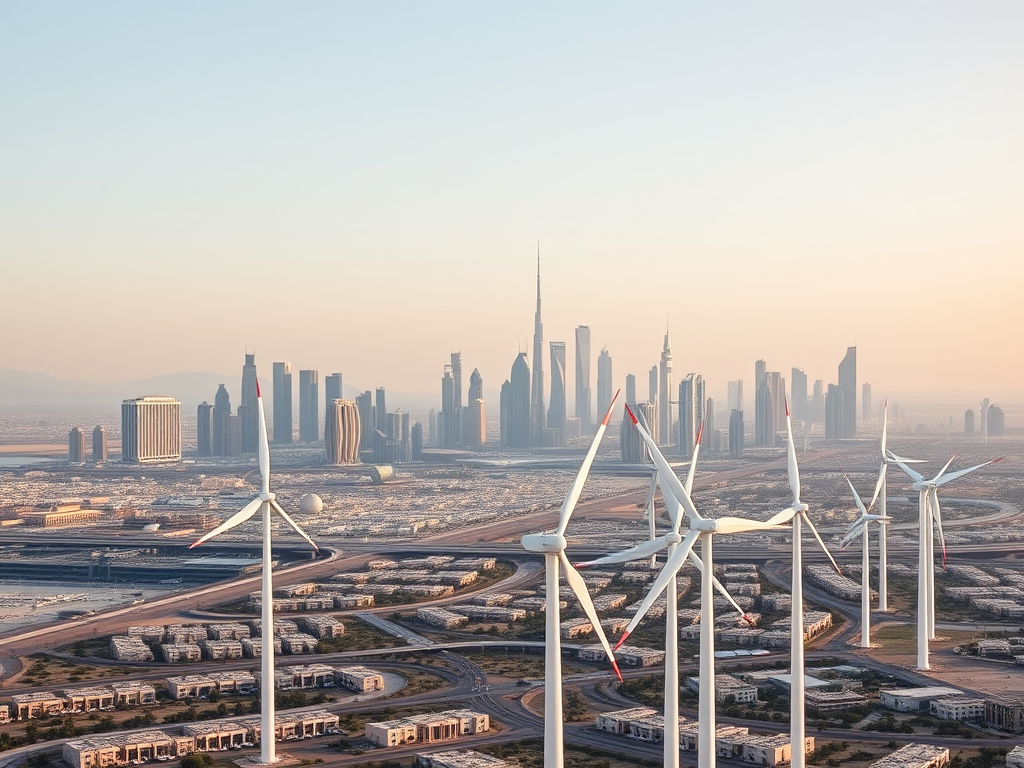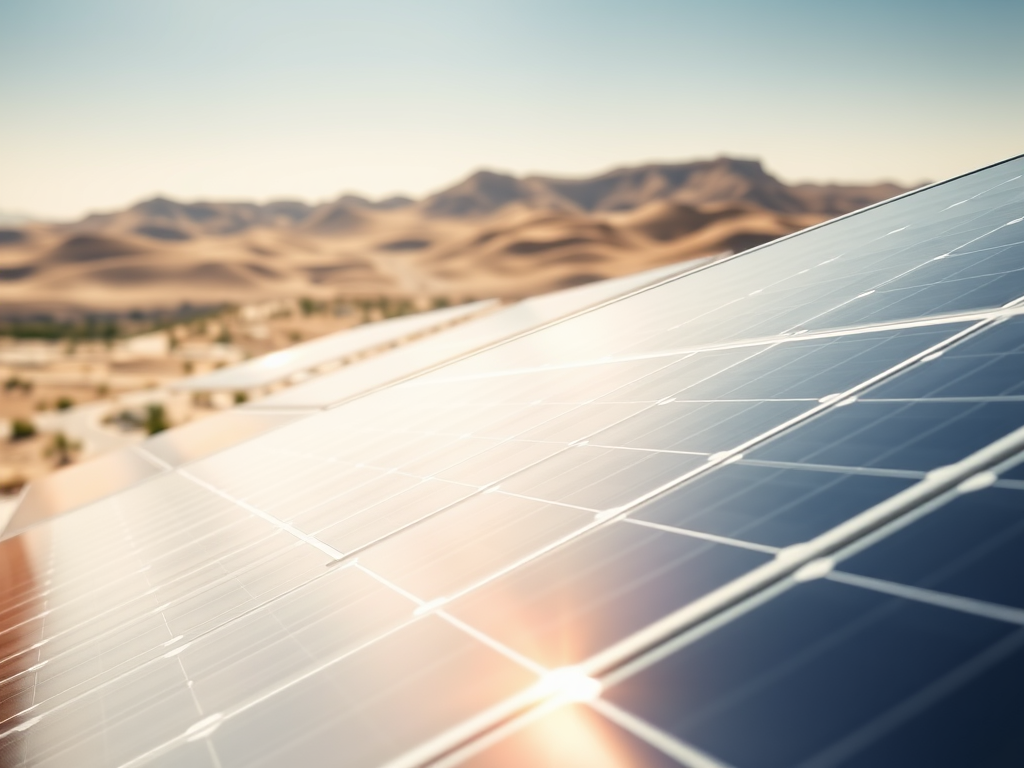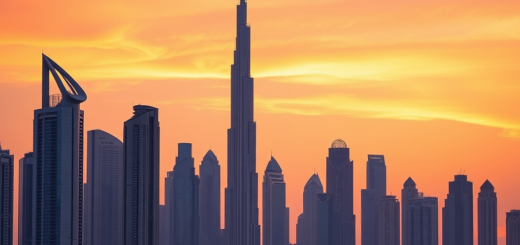The Potential of Dubai’s Green Energy Exports
Dubai is rapidly emerging as a hub for green energy exports, leveraging its strategic geographic location and technological advancements to create a sustainable energy sector. The emirate’s commitment to renewable energy technologies, particularly solar power, is transforming its energy landscape while positioning it as a key player in the global green energy market. By tapping into solar, wind, and other renewable resources, Dubai not only aims for energy self-sufficiency but also seeks to export green energy, contributing to global sustainability efforts.
Dubai’s Strategic Location and Infrastructure

Dubai’s geographic advantages and state-of-the-art infrastructure play a pivotal role in its potential as a green energy exporter. Its strategic location between Europe, Asia, and Africa allows for easy access to lucrative markets, making it an ideal transit point for green energy. The emirate has made substantial investments in its infrastructure, including the development of solar parks and wind farms, which facilitate the generation and transmission of renewable energy. This investment in infrastructure is complemented by Dubai’s advanced logistics networks, enabling efficient distribution of energy supplies. Consequently, Dubai is well-positioned to capitalize on the increasing international demand for renewable energy sources.
The Dubai government has launched a series of initiatives aimed at promoting green energy development, which will significantly enhance its export potential. Key policies include:
- Dubai Clean Energy Strategy 2050: Aiming for 75% of Dubai’s energy to be generated from clean resources.
- Net Zero by 2050: Commitment to achieve net zero carbon emissions by 2050.
- Investment in Solar Technology: The Mohammed bin Rashid Al Maktoum Solar Park is set to be the largest solar park in the world.
- Incentives for Investors: The government offers incentives for businesses investing in renewable energy projects.
These initiatives highlight Dubai’s determination to be a leader in sustainable energy while fostering a business-friendly environment for investors, which in turn boosts potential exports.
Technological Innovations Driving Green Energy

Dubai is at the forefront of technological advancement in renewable energy, which greatly enhances its capacity for green energy exports. Innovations in solar and wind energy technologies have improved efficiency and reduced costs, making renewables more competitive with traditional fossil fuels. For instance, the adoption of photovoltaic (PV) solar panels with higher conversion efficiencies is a game-changer for solar energy production. Additionally, energy storage technologies, such as lithium-ion batteries, are key to managing supply and demand, ensuring that surplus energy can be stored and exported when needed. The improvement in grid technology, including smart grids, further supports the reliable transmission of green energy across borders. Consequently, these technological strides not only bolster local consumption but also increase the feasibility of exporting renewable energy to neighboring countries.
Market Demand for Renewable Energy
Global demand for renewable energy continues to rise, fueled by concerns over climate change and the push for sustainable practices. With nations increasingly investing in green technologies, Dubai is perfectly positioned to meet this demand. The major markets for Dubai’s green energy exports include:
- European Union: Striving to reduce carbon emissions and transition to renewable energy sources.
- Asia: Facing energy shortages, with markets like China and India showing increasing interest.
- MENA Region: Countries in the Middle East and North Africa are diversifying their energy portfolios.
This burgeoning market not only provides an opportunity for Dubai to expand its economic footprint but also supports its overarching goal of leading in renewable energy exports.
Challenges and Considerations
Despite its vast potential, Dubai faces several challenges in realizing its green energy export ambitions. These challenges include regulatory hurdles, the need for additional investment in infrastructure, and competition from other emerging renewable energy markets. Furthermore, fluctuations in energy prices on a global scale can impact the profitability of energy exports. Additionally, there is a necessity for stringent international agreements that ensure the sustainability of energy trade practices. Collaboration with international stakeholders is paramount to overcome these obstacles, ensuring that Dubai can solidify its role as a significant exporter of renewable energy.
Conclusion
Dubai’s pursuit of green energy exports not only marks a departure from traditional energy paradigms but also positions it as a leader in the global renewable energy market. Through strategic location, innovative technologies, robust government initiatives, and a favorable market environment, Dubai is poised to become a pivotal player in the green energy landscape. While challenges persist, the emirate’s commitment to sustainable practices and investment in renewable resources will likely lead to enhanced energy capacity and export capabilities in the coming years.
Frequently Asked Questions
1. What types of renewable energy does Dubai focus on for exports?
Dubai primarily focuses on solar and wind energy for its green energy exports, with significant investments in solar parks and wind farms.
2. How does Dubai’s geographic location benefit its green energy exports?
Dubai’s location between Europe, Asia, and Africa provides easy access to expanding markets, facilitating the distribution of green energy.
3. What government initiatives are supporting Dubai’s green energy sector?
Key initiatives include the Dubai Clean Energy Strategy 2050 and the commitment to achieve net-zero emissions by 2050, along with attractive incentives for investors.
4. What are the main challenges Dubai faces in green energy exports?
Challenges include regulatory hurdles, the need for further infrastructure investment, price fluctuations, and competition from other renewable energy markets.
5. How is technology influencing Dubai’s capacity for green energy production?
Technological innovations, such as advanced solar panels and energy storage solutions, enhance the efficiency and reliability of renewable energy production and exportation.


